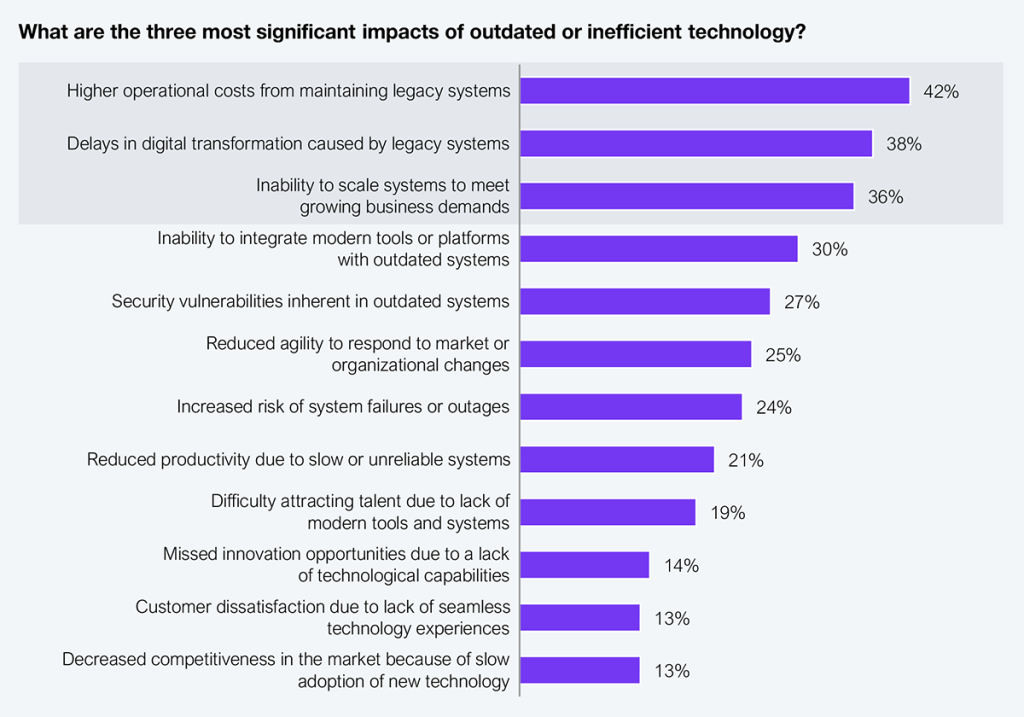Despite all the hype and investments in AI, enterprises remain shackled by their legacy. It’s not the algorithms or platforms holding them back—it’s the outdated technology, entrenched organizational structures, and broken data foundations. The promise of agentic AI, capable of autonomous and context-aware decision-making, will remain unfulfilled until enterprises rip out the roots of their resistance to change.
According to data from the 2025 HFS Pulse survey, the three most significant impacts of outdated or inefficient technology are high operational costs, delayed transformation, and inability to scale (see Exhibit 1).

Source: 2025 HFS Pulse survey; N=118
These aren’t just IT headaches; they’re enterprise-wide barriers to transformation. Yet when we asked 305 enterprises about their top 3 areas of tech investment for the next 2 years, legacy transformation didn’t even crack the top five! Instead, they focused on implementing AI, the C-suite’s latest darling (See Exhibit 2).

Source: 2025 HFS Pulse survey; N=305
There’s a painful contradiction here: Enterprises acknowledge that legacy tech sabotages efficiency and experience, but they’re not investing in the profound transformation needed to resolve it. It’s like trying to win a Formula 1 race with a 1990s engine and hoping the pit crew can make up for the difference.
With interest in Agentic AI skyrocketing, it is essential to understand that it requires dynamic systems, interoperable data, and a fluid operating model to deliver on its promises. These conditions are nearly impossible to meet in environments where data is buried in siloes and clunky legacy processes, systems and architectures hinder fluid movement of data. Until enterprises attack these systemic blockers head-on, agentic AI will remain a science experiment—not a business capability.
Enterprises keep buying new tools and expecting different outcomes. But AI is not a plug-and-play productivity fix—it’s a catalyst that demands systemic reinvention. Without addressing legacy tech debt, rigid governance, and stale organizational habits, AI will remain trapped in pilots and proofs of concept, unable to scale meaningfully across the business.
We’re witnessing a moment where the real competitive edge won’t come from who has the best AI toolset—but from who dares to overhaul their enterprise DNA. Enterprise leaders must:
The real issue is a lack of willingness to confront deep-rooted legacy systems, outdated data policies, and ossified operating models. If you want scaled AI adoption—especially for next-gen capabilities such as agentic AI—your organization must embark on a bold transformation agenda that prioritizes addressing endemic legacy debt.
Register now for immediate access of HFS' research, data and forward looking trends.
Get StartedIf you don't have an account, Register here |
Register now for immediate access of HFS' research, data and forward looking trends.
Get Started